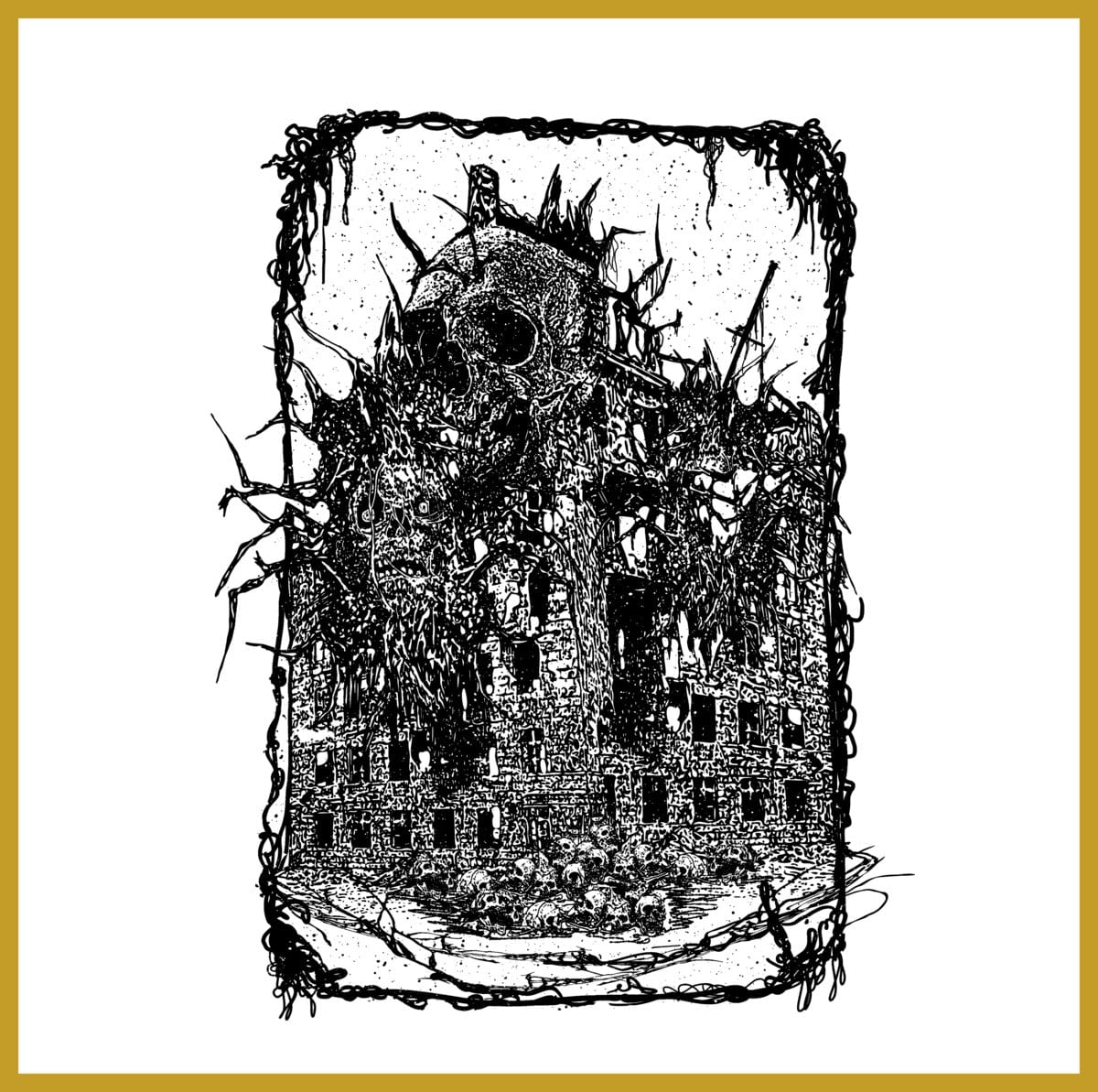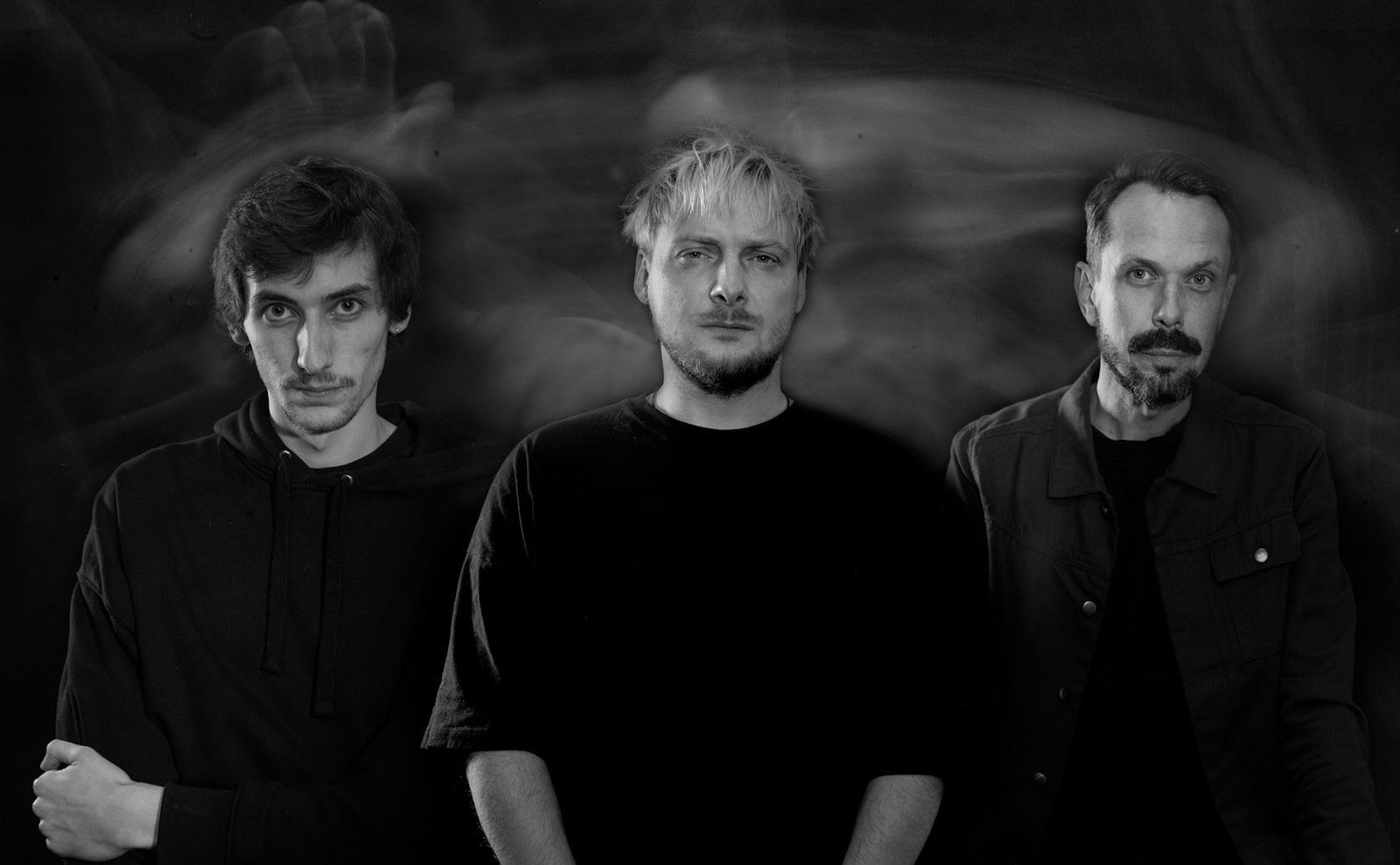As dusk falled on the eve of November 30th, the South Carolina post-black metal band Prosperity Gospel launched their listeners into the gloaming with their second LP, “Society of the Spectral”, a treatise set to the tune of desolation, a narrative scored with the bleak poetry of modern existence.
With a stylistic nod to the likes of Downfall of Gaia and Deafheaven, Prosperity Gospel weaves a fabric of sound that is both haunting and heavily threaded with the intellectual.
The band ventures deeper into the abyss of sound that they began to explore in 2020, with each chord and lyric steeped in the dystopian philosophy of Guy Debord and the existential musings of Schopenhauer. Their latest opus is an audial descent into the spectacle of society as we know it—a world where the visceral and the cerebral collide.
Eddie Newman’s reflections on Debord’s seminal work resonate with a chilling clarity, painting a sonorous landscape that is not just heard, but felt—a symphony of the spectral.
The album unfolds like a grim prophecy, heralding the transition from “being” to “having” and then, inevitably, from “having” to “appearing.” It’s a journey through a life disfigured by capitalism’s contradictions, a life that vibrates with the static of atomization and generalizes into a blur of existence.
“Society of the Spectral” is more than a collection of tracks; it’s a philosophical dialogue set against the backdrop of a world teetering on the brink of collapse. It’s a fantasy of what comes after—the post-capitalist world not as a utopia, but as a stark, unflinching reality. The album’s narrative arc, from the disintegration of community to the last plane crash of the Anthropocene, serves as a sobering reminder of the transience of human endeavor.
Prosperity Gospel stands at the vanguard of this spectral society, not as its champion but as its chronicler, capturing the ephemeral in the permanent grooves of their record. As the band releases this second full-length album, the first with the full lineup, and contributions from voices like Nathan Kwon, the stage is set not for a celebration, but for contemplation—of what we have become, and what we may yet transform into.
“Being into Having”: this is one of the first songs I wrote shortly after the release of the first PG album. The spectacle swallows its own detractors and real life gives way to the hording of shit. Similar to Zizek’s concept of “inherent transgression,” the avenues of fighting against and disassociation from the capitalist whole in fact act as relief valves which support total integration with the spectacle. “A weapon can’t be raised against itself.” Minimalism, mindfulness, green living, peaceful protest, recycling, therapy, boycotts, consumption of liberal media, these are all options sold to us as ways to transgress against or escape from the more obvious greed and violence of the system, but they are a part of that system itself and serve to pacify one against real action. These band-aids are all things to buy into and have, not true alternative ways to be.
“Having into Appearing”: This is the final step in modern integration into spectacle. The flimsy existence based on accumulation of luxuries has further degraded into one in which we chase mere appearance in the eyes of others. We are not content with merely having fancy clothes or a house furnished with fine items; we want people to view us as the “kind” of person who has those things. This holds true not just for typical indicators of wealth, it can also be seen in a crust punk working hard to ensure their appearance reflects an exciting person who lives outside of society. There is no authentic existence, no romantic truth behind the fact that we are under control by visible and invisible forces, addicted to images and appearances and filters and lenses and curation. If you have ever taken a picture of your food to post on social media, you will never look at a plate of food directly again. We have been transformed into walking appearance generators. You “can’t circumvent the viewfinder that implanted inside your skull.”
View this post on Instagram
“Atomizing”: The book “Society of the Spectacle” begins with these two words: “Separation Perfected.” What was public once is now private. What was once collective is now individual. Store rations, build a shelter, learn first aid, learn to hunt. If you want to swim, build a pool. Aside from the inefficiencies and inequalities of a system where everyone must provide everything for themselves, we are more alienated from each other than ever before, in habits, in shared memories, in physical proximity. The things we do share are superficial, necessitate consumption, and often are just meaningless tribalism. Have you seen the new HBO show? Which pro football team do you cheer for? What’s your astrological symbol? We’re no longer being dehumanized as part of a demographic, we are an individual plot point in the mapping of human experience onto a graph aimed at total extraction.
“Generalizing”: The complementary force which works hand in hand with the atomization is generalization. “Renounce your aberrations.” We are all rivets on an unsteered ship, required by force and lack of options to play our anonymous part in order for the autonomous spectracle to accomplish the one thing it aims for: an increase in its rate of expansion. The forces which make us describable also make us replaceable.
“Transforming“: Eventually the contradictions of capitalism will cause its downfall, and whether human life remains at that point is yet to be seen. When things fall apart, old signifiers will be transmuted into new meanings. This song imagines the last power on earth burning in service of the pointless- self driving trucks carrying a cargo of nothing, neon signs advertising products that no longer exist. This chorus steals heavily from Macbeth’s “sound and fury” tirade. Here, the sound and fury are the resources poured into erecting more and more scaffolding on this collapsing building, the scaffolding we climb towards a dusty death.
“Vibrating“: One supposed stage of post-capitalist existence, the time after the machines have gone silent, is a fantasy about a return a wildness in formerly concrete jungles. By its definition, capitalist growth can exist as long as there is something exploitable. Thus, nothing will remain unspoiled, no land un-razed, no ore un-mined before the machinery breaks down for the last time. What will be left will be total desolation, not an aesthetically pleasing playground that exists in post-apocalyptic fiction. Given this future, rational and ethical humans will deny their own instincts and refuse procreation. As Zapffe said in “The Last Messiah,” “Let the earth be silent after ye.”
“Flying“: It is certain that at some point in history, the last plane crash will occur. There are lots of ways to define the starting point of the post-Anthropocene era, the last plane crash is one of those benchmarks. Someday soon, Icarus will return and we will see the blast from miles around.











